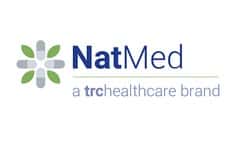Grapes and products made from grapes may promote body terrainthe internal conditions of your body, including nutritional status, fitness, blood sugar balance, hormone balance, inflammation and more factors known to be important in cancer, including better blood sugar and insulin levels and less oxidative stressan imbalance between free radicals and antioxidants in your body in which antioxidant levels are lower than normal; this imbalance can cause harmful oxidation reactions in your body chemistry.
How do experts use grapes and grape extracts?
Integrative experts provide recommendations for grapes and grape extracts in treating people with cancer. Learn more about the approaches and meanings of
recommendations ›
Published protocols, programs, and approaches
These protocolsa package of therapies combining and preferably integrating various therapies and practices into a cohesive design for care, programs, and approaches by leaders in integrative cancer care use or recommend grapes or grape extracts.
We do not recommend specific integrative protocols or programs but provide information for you to evaluate with your healthcare team.
Lise Alschuler, ND, FABNO, and Karolyn Gazella
Alschuler LN, Gazella KA. The Definitive Guide to Cancer, 3rd Edition: An Integrative Approach to Prevention, Treatment, and Healing. Berkeley, California: Celestial Arts. 2010.
Alschuler LN, Gazella KA. The Definitive Guide to Thriving after Cancer: A Five-Step Integrative Plan to Reduce the Risk of Recurrence and Build Lifelong Health. Berkeley, California: Ten Speed Press. 2013.
These books describe approaches for certain cancer types, or along with certain conventional therapy treatments, or for particular conditions such as insulin resistancea condition in which cells in your muscles, fat, and liver don’t respond well to insulin and can’t efficiently take up glucose from your blood for energy.
Grapes as food enhance immune function, provide antioxidant action, protect cells, and enhance detoxification.
Keith Block, MD
Block KI. Life over Cancer: The Block Center Program for Integrative Cancer Care. New York: Bantam Dell. 2009.
The integrative Block Program has recommendations to people who are at different places along the cancer continuum:
- Those who’ve been recently diagnosed
- Those in treatment
- Those who’ve concluded treatment and need to remain vigilant to prevent recurrence
Dr. Block’s protocol uses red grapes and purple grape juice for blood circulation/coagulation. Grape seed extract is used for these effects:
- Improve oxidation and reduce oxidative stress
- Improve circulation/coagulation (also red wine extract)
- Reduce radiation enteritisinflammation of the small intestine caused by radiation therapy to the abdomen, pelvis, or rectum
- Target progression pathways after treatment
- Target epidermal growth factor receptor (EGFR)
Gerald M. Lemole, MD; Pallav K. Mehta, MD; and Dwight L. McKee, MD
Lemole GM, Mehta PK, McKee DL. After Cancer Care: The Definitive Self-Care Guide to Getting and Staying Well for Patients with Cancer. New York, New York: Rodale, Inc. 2015.
These doctors present easy-to-incorporate lifestyle changes to help you “turn on” hundreds of genes that fight cancer, and “turn off” the ones that encourage cancer, while recommending lifestyle approaches to address each type.
Grapes or grape extracts are used in protocols for these cancer types:
- Breast cancer
- Colorectal cancer
- Prostate cancer
- Leukemia
Neil McKinney, BSc, ND
McKinney N. Naturopathic Oncology, Fourth Edition. Victoria, BC, Canada: Liaison Press. 2020.
This book includes descriptions and uses of many natural and complementary protocols for cancer in general and for specific cancers. It also includes information on integrative support during conventional cancer treatment.
Grapes are a source of boron—linked to lower risk of lung cancer in adequate amounts—and are rich in ellagic acid and salvestrols—plant antifungals that are “pro-drugs” that become toxic in cancer cells. Grapes also support mitochondrial recovery and help eliminate carcinogens from fungal toxins.
Uses of grapes:
- Cancer prevention
- Breast cancer
- Stomach cancer
- Pancreatic cancer
- Skin cancer
Uses of grape seed extract for anticancer effects:
- Inhibit angiogenesisformation of blood vessels
- Inhibit tumor invasion
- Support p53 activity in cancer prevention
- Suppress estrogen biosynthesis (hormone blockade)
- Supportive to intravenous vitamin C therapy
Uses of grape seed extract for body terrain support:
- Anti-inflammatory
- Antiviral
- Increase natural killer cell activity
- Antioxidant protection for damage from radiation devices, such as scans
Uses of grape seed extract for managing symptoms and side effects:
- Treat pulmonary fibrosis from radiation therapy
- Treat skin with radiation dermatitis (topical oil)
- Reduce nerve injury
- With conventional cancer treatments:
- Anastrozole and letrozole
- Reduce toxicity from cyclophosphamide
- With doxorubicin to reduce myocardial oxidative stress, reduce toxicity, and improve effectiveness
- Manage joint pains from letrozole
- Use with acetyl-L-carnitine for “chemo brain”
- Treat cachexiaweakness and wasting of the body due to severe chronic illness
- Treat hot flashes
- Slow bone breakdown in bone metastases
Grape extracts are incompatible with N-acetyl-cysteine.
Used with these cancer types:
- Breast
- Bladder
- Brain and nerve
- Carcinoid (GI neuroendocrine)
- Cervical
- Colorectal
- Esophageal
- Kidney
- Leukemia (AML)
- Liver and gallbladder
- Lung
- Lymphoma
- Mesothelioma
- Myeloma
- Myelodysplastic syndrome
- Nasopharyngeal, head and neck
- Ovarian
- Prostate
- Sarcoma
- Skin (non-melanoma)
- Stomach
- Uterine
Nasha Winters ND, FABNO, LAc, DiplOM, and Jess Higgins Kelley, MNT
Winters ND, Kelley JH. The Metabolic Approach to Cancer. 2017. Chelsea Green Publishing.
This book’s metabolic approach to cancer is a “naturopathic nutrition program that uses the medicinal powers of traditional foods, therapeutic diets and non-toxic lifestyle approaches as cancer counteragents and preventives.“ The program focuses on 10 terrain elements and how to assess them and bring them into balance.
Red grapes are listed as a top food for inhibiting angiogenesis and metastasis. This book lists red grapes as a source of resveratrol, which activates adaptive stress response signaling pathways. See Resveratrol ›
Dosing
Dosage has not been standardized for use in cancer care, but recommendations are available from this source:

Grape Professional Monograph ›
Subscription required
General information about dosing
Find general dosing guidelines regarding natural products and supplements in Dosing Guidelines ›
